A Fork In The Road Tales of food, pleasure & discovery on the road.
A collection of 34 original stories by some of the world’s most acclaimed chefs, food writers and novelists focusing on how travel and eating combine to shape and inspire our lives.
Join us at the table for this 34-course banquet of original stories from food-obsessed writers and chefs sharing their life-changing food experiences. The dubious joy of a Twinkie, the hunger-sauced rhapsody of fish heads, the grand celebration of an Indian wedding feast; the things we eat and the people we eat with remain powerful signposts in our memories, long after the plates have been cleared.
Editor James Oseland says of the essays in the book: “Each of them says something ineffable about how we process and remember tastes and sensations, and about how they alter our view of the world. The stories encompass a vast mosaic of experience, from bitter to sweet to everything in between, and an equally vast range of voices. Some are rough, some are intensely refined. But they all have one thing in common: they chronicle food and eating in a deeply personal way.”
A Fork in the Road is just that. It’s Marcus Samuelsson‘s epiphany after a meal of fugu that there was more to learn about “fine dining” than he thought or Carla Hall‘s first attempt at chicken pot pie transforming her approach to cooking. It’s David Kamp‘s childhood memories of a New England boarding house’s summer meals or Martin Yan watching his mother at the stove as a child in Guangzhou, China. It’s Alan Richman‘s search for koshary, the national dish of Egypt, during the Arab Spring or André Aciman‘s redemptive last meal in Tuscany after a disastrous trip.
It’s the life-changing moments that inspire you to seek your own culinary adventure.
 James Oseland is the editor-in-chief of Saveur, America’s most critically acclaimed food magazine. Under his editorship, the magazine has won more than 40 awards, including numerous James Beard journalism awards, and three from the American Society of Magazine Editors. His 2006 book, Cradle of Flavor, a memoir with recipes about his time living in Southeast Asia, was named one of the best books of that year by Time Asia, The New York Times, and Good Morning America, and won awards from the James Beard Foundation and the International Association of Culinary Professionals. He is also the editor of Saveur’s cookbooks, including Saveur: The New Comfort Food and Saveur: The Way We Cook. James is a judge on the cooking competition program Top Chef Masters, and appears as a guest on other international television shows. He is writing Jimmy Neurosis, a memoir of his punk rock youth in the 1970s, for Ecco Press, a HarperCollins imprint. James has lived in India and Indonesia, and now resides in New York City with his husband, Daniel.
James Oseland is the editor-in-chief of Saveur, America’s most critically acclaimed food magazine. Under his editorship, the magazine has won more than 40 awards, including numerous James Beard journalism awards, and three from the American Society of Magazine Editors. His 2006 book, Cradle of Flavor, a memoir with recipes about his time living in Southeast Asia, was named one of the best books of that year by Time Asia, The New York Times, and Good Morning America, and won awards from the James Beard Foundation and the International Association of Culinary Professionals. He is also the editor of Saveur’s cookbooks, including Saveur: The New Comfort Food and Saveur: The Way We Cook. James is a judge on the cooking competition program Top Chef Masters, and appears as a guest on other international television shows. He is writing Jimmy Neurosis, a memoir of his punk rock youth in the 1970s, for Ecco Press, a HarperCollins imprint. James has lived in India and Indonesia, and now resides in New York City with his husband, Daniel.
Photo by Todd Coleman.
A Fork in the Road is a collection of 34 original stories collected by Saveur Editor-and-Chief James Oseland. It is an eclectic compilation of unique experiences of inspiration, discovery and epiphany written by some of today’s leading culinary figures. Booksaboutfood.com recently had the pleasure of talking to James Oseland about his new book.
Booksaboutfood.com (BAF): How did this project came to fruition?
James Oseland: Well, it was roughly two years ago I had been asked to write the forward to a Lonely Planet book called, “Food Lover’s Guide to the World.” That was a very friendly and lovely experience. A few months later the editor that I had been working with there at Lonely Planet’s Melbourne office had asked me about editing what was to become A Fork in the Road, and as a virtually life-long Lonely Planet fan, rabid fan, I jumped at the chance. Lonely Planet is a company I have a long-standing respect for. The idea for the kind of book that the editor I was talking to wanted to create was very appealing to me.
BAF: It’s quite an eclectic group of contributors.
James Oseland: It’s quite an eclectic group, isn’t it! I will confirm.
A good number of the contributors to the book were people who I’ve worked with professionally before and many of them were people that I wanted to work with professionally before, but hadn’t had the pleasure yet. It was a treat and a thrill to be able to reach out to people and receive the kind of response that I had when I was originally asked by Lonely Planet to do the book.
BAF: The response was good?
James Oseland: The response was very good and I don’t know for certain … there’s no way of knowing this, but I suspect that a lot of people had positive responses for the same reasons that I do because of the brand Lonely Planet is so beloved, so kind of known.
BAF: What was your criteria for selecting the stories that went into it?
James Oseland: After a particular writer had agreed to contributing a piece and to the necessary parameters and the deadline and all of that, I guess I cast a pretty wide net… I set very open parameters for what kinds of stories I was looking for. What I asked contributors to do was to come up with a few ideas. Ideas that were about a moment in their lives that in one way or another surrounded food or just the consumption of it or the cooking of it.
The only requirement was that that moment have had some special, extraordinary even resonance for them in their life, and the only other parameter was I asked at that moment not have taken place inside their home or wherever they were living during that moment, that the moment had taken place somewhere else, even just across the street because I was coming to them as an editor of a Lonely Planet book. I was also concerned that people would automatically want to be contributing stories that were only about far-flung villages in Burma, and that didn’t feel necessary.
For me the idea of travel doesn’t always involve a long flight; for the me the notion of travel is really surrounds something beyond where your daily life exists. All the contributors got back to me with a number of ideas and then we talked from there. The reason why I wanted to do that was not to inhibit people’s creativity, but I didn’t want too many stories that took place in New England or too many stories that involve scrambled eggs. Although neither of those two things actually happened.
BAF: The other thing that I found was interesting was these are all seasoned veterans of the food world, chefs and writers, presenters, but many of these stories take place after they’ve already achieved a certain notoriety and a certain level of success, so it’s interesting that people who have achieved things are still getting influenced, getting surprised and are still getting moved by food even though you’ve assumed they’ve seen and done it all.
James Oseland: Yeah, I think that epiphanies in food don’t stop, and in fact maybe this is a bit I don’t know far reaching what I’m about to say, that I think that every day we inhabit the Earth we can encounter extraordinary and even life-changing food moments. I think that one’s great food moments are not confined to one’s early life, but one of the great potential joys is the great food moments that lay just around the corner, the moments that can expand not only one’s experience of food and one’s own palate, but also one’s own experience of the world. It’s one of the great intrinsic aspects of eating!
It’s not something that continually, perpetually happens. I mean I had spent the last 20 years of my life eating professionally, but I can’t tell you the amount of time that I’m surprised by something that I didn’t know or that I hadn’t encountered before…an ingredient, a dish, a flavor combination, a place, a plating style. The list goes on.
BAF: There aren’t a lot of grandiose meals, or going to the biggest, fanciest restaurants and having the best meal ever; it’s fairly simple, straightforward and, for lack of a better word, basic food.
James Oseland: That is largely true I think. You’re right and I speak for my own experience on I think of revelatory food moments from my past. They largely tend to not have been Paris 3-star restaurants, but instead were moments either where I was very hungry or I was in some sort of heightened emotional state, or I was in an unfamiliar place, or something in the particular meal that I was consuming led me to some other discovery not necessarily related to what I was eating, like say at a particular meal I met somebody who had a very significant effect on the course of my life.
It’s interesting that you said that because I think that a lot of times people who don’t work in the world of food like myself, and actually whenever I say “world of food” I kind of pause on that statement and think, “What is that? I mean we all live in the world of food.” I think that sometimes people don’t at least work in the world of food media that I do think that a lot of folks like myself are only interested in these five hour tasting menus involving 30 plus courses and all sorts of unidentifiable foods and really nothing can be further from the truth. In fact, generally speaking I might go to most satisfying meal is at home and usually involves not much more than rice and beans and a fried egg.
BAF: In the introduction you talk about a wonderful meal you had in Chicago, but that opened your eyes to food, but you also mentioned going to the markets in Asia and that just sealed the deal and just really transported you.
James Oseland: Yeah absolutely! It’s funny because the experience that I described in the introduction of the book in Penang, Malaysia and stumbling onto a nighttime food market, and really being transported, elevated, it’s not an experience that was just singular to that particular night in 1982, but it’s an experience that I had the great luck and pleasure to revisit in a number of ways over the last … yeah 30 plus years now. Not only in Southeast Asia, but all far-flung corners of the world.
Just a couple of weeks ago I had the great pleasure to be in South Lebanon, a place I’ve never been before, eating not only in markets, but in people’s homes, some of the best food I’ve ever eaten! Some of the most satisfying, delicious, pure, vibrant food I’d ever encountered! I had an idea that I was going to like the food in Lebanon, but I had no idea how much I was going to be blown away by it and really, truly transported!
That food is extraordinary! I mean I’ve eaten food in Lebanese restaurants, not only in America, but in the Middle East, but I’ve never been to Lebanon and eating the food in ‘the motherland’ it was like I felt for a moment that I found my food! It was just so, so perfect and so delicious!
BAF: The stories are fairly similar in the sense that they’re all basic, straightforward experiences.
James Oseland: Well, there’s another layer to the experience of food and I think that these stories do a good job of evoking this aspect of eating which is that eating…the act of eating is only about nourishment; it’s so deeply tied to our sociology, to our emotions, to our cultures and the stories of what we eat go a long way to telling others about who we are and how we experience the world.
I think that’s what’s so special about this book is sure the accounts of all these meals, most of them humble, but not all, is very fascinating just from a kind of surface view! What’s even more interesting is what lay beneath!
BAF: Were there any themes that maybe emerged from these stories as you were reading them and putting them together that surprised you?
James Oseland: Yes and no. I mean I think because of my work at Saveur and the work we do there, … the thing is about Saveur is it looks and acts like a food magazine, but it’s really not. Instead it’s a magazine of culture and of people’s lives, a magazine that tells the stories of people’s lives through what they eat. From my years of working with Saveur, going back to 1998 I have a kind of, sort of fundamental … I don’t know; it’s a kind of place that I work from where I know that every single day I’m going to be surprised by some other story that comes along.
I think that … I was surprised by the alacrity which all the contributors got back to me with a roster of very wonderful ideas; no one dragged their feet. Everybody was just like, “Boom. Boom. Boom. Here are the three or four or five or six stories I’d like to contribute to the book.” That was surprising!
France appeared quite often in people’s original pitches and ultimately appears in the book. I believe it’s four, but it might be five times which also surprised me because I guess in my mind I associate maybe a kind of certain generation as eaters that might think of France as a Kingdom Come, but it was interesting to see that still the case, and interesting and refreshing!
BAF: What’s next for you?
James Oseland: There is another book on the horizon, a very different sort of book that I’m writing (Jimmy Neurosis) for Echo Press; it’s a HarperCollins imprint and it is a memoir of my very stormy adolescence. A lot of people have … most of us have some turbulent adolescent story in our past, but mine was particularly … so I was a punk rock high school dropout in San Francisco in the late 1970s and it’s an account of that time and that place. There’s alas not a lot of food in the book.
BAF: What about Saveur? Anything interesting coming up with Saveur?
James Oseland: We are celebrating, in 2014, our 20th anniversary, so we have a number of things lined up, including what I think will be some truly special issues of the magazine. March of 2014 redesign of the magazine, lots of stuff in the store for 2014 for Saveur many things I’m very, very excited about!
BAF: You’ve obviously done a lot of traveling, a lot of eating. Have any of these stories inspired you to go somewhere that you didn’t know about it and think about it.
James Oseland: That’s a great question. I’m looking over the list. I’m looking over the TOC,the table of contents.
One thing I know for certain, I’m not interested in the maggot cheese that Joe Dunthorne writes about. I think I’ll pass thanks very much.
It’s conversely what Alan Richman, the restaurant critic of GQ describes eating for a couple of days in Cairo. It’s not largely not appealing, and Alan in fact didn’t have such a transformative experience in Cairo. Now I’m determined to find extraordinary food in Cairo.
Booksaboutfood.com © 2014


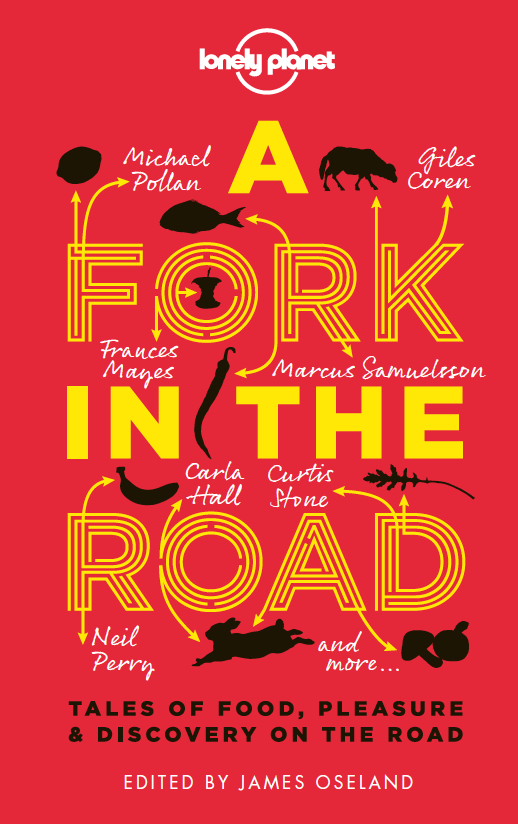


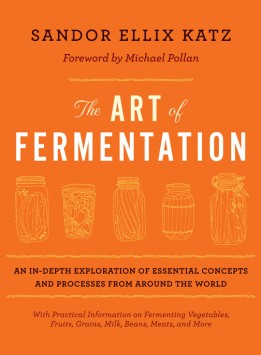
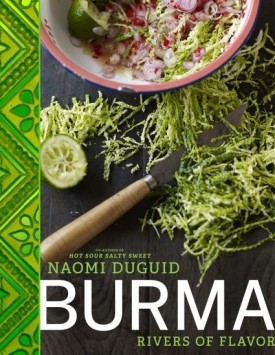
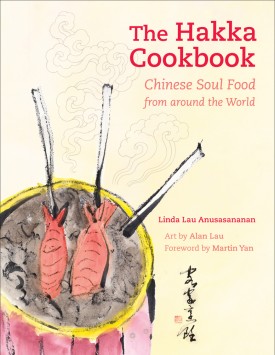

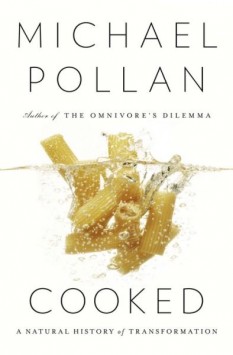
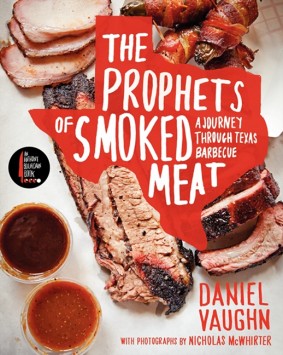
Leave a Reply